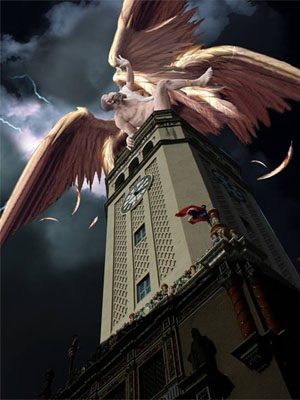 We mentioned the “Heavy Metal and the Communal Experience” conference which will take place in San Juan, Puerto Rico on March 5, 2014. This conference aims to define community in metal and explore its boundaries.
We mentioned the “Heavy Metal and the Communal Experience” conference which will take place in San Juan, Puerto Rico on March 5, 2014. This conference aims to define community in metal and explore its boundaries.
As part of our ongoing exploration of academia in metal, this conference offers a topic that many of us have wondered about in the past. How does metal balance its radical individualism with its radical sense of community, and of a post-individual humanity, which sets it apart from all other genres philosophically?
Some years ago a friend mentioned how death metal unnerved her because the bands attempted to play in unison with each other or at least in complement with each other instead of trying to push the boundaries of how chaotic they could get. Like church music or higher math, metal is about order, and it imposes this through forcing twisted fragments of power chords into phrases that address each other like a dialogue in the music. This outlook could explain how metal views community.
The conference will attract a number of luminaries from the metal academic circuit, including:
- Keith Kahn-Harris
University of London, UK - Niall William Richard Scott
University of Central Lancashire, UK - Deena Weinstein
DePaul University, USA - Karl Spracklen
Leeds Metropolitan University, UK - Jeremy Wayne Wallach
Bowling Green State University, USA - Amber Clifford
University of Central Missouri, USA - Brian A. Hickam
Benedictine University, USA - Cláudia Souza Nunes de Azevedo
Universidade Federal do Estado do Rio de Janeiro, BR - Nelson Varas Díaz
Universidad de Puerto Rico, PR
Tags: academia, amber clifford, brian hickam, deena weinstein, jeremy wayne wallach, karl spracklen, keith kahn-harris, niall scott


This academic hijacking of metal seems to be just self promotion for academics who have jumped onto a niche. The metal academic circuit lol…
That’s definitely true.
But that’s how research works. Academics jump into unexplored territory. All in all, I think good things may come out of this.
I am willing to see what comes from it, but am not confident it will rise above the level already established, which remains wanting. But that is a problem with academia in general, so perhaps it is understandable at least.
I don’t see how metal has been “hijacked” by its study. If you can give me an example of an academic taking over a band, a venue, etc., let me know. Some of the magazines use or refer to the stuff generated by academics, but that ain’t a hijacking, at least where I come from.
You’re a bit offbase. The majority of metal scholars I know were headbangers first. I’ve been into metal since 1981, when I was eleven. Most of us got various degrees and didn’t expect to be doing research on metal until 2008, when the first conference came along. In short, I’ll put my metal knowledge and ticket stubs against anyone.